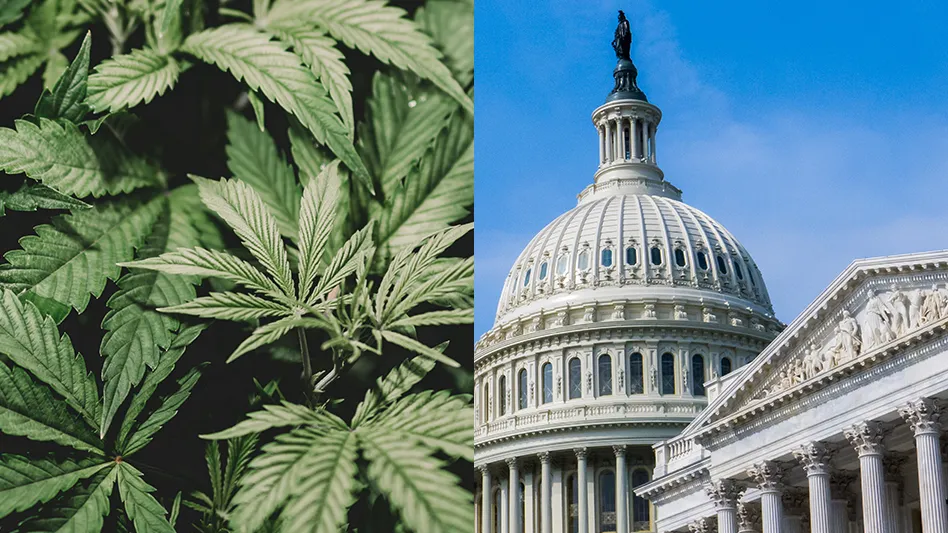Another U.S. congressman is putting pressure on the Drug Enforcement Administration (DEA) to follow through on a presidential request regarding cannabis reform.
Rep. Steve Cohen, D-Tenn., wrote a letter Jan. 4 to DEA Administrator Anne Milgram urging her “in the strongest possible way” to act expeditiously on the Aug. 29 Department of Health and Human Services (HHS) recommendation to reschedule cannabis to Schedule III under the Controlled Substances Act (CSA).
“Marijuana never belonged on Schedule I,” Cohen wrote. “Its inclusion resulted in harsh and disproportionate prison sentences, particularly for communities of color. Nearly half the states have already legalized marijuana for recreational use by ballot measure. You have a historic opportunity to make meaningful progress as Congress works on legislation to deschedule marijuana under the Controlled Substances Act and address some of the inequities caused by this misguided and discriminatory policy.”
A longtime advocate of lifting restrictions on the plant, Cohen claims he’s been behind cannabis reform since 1977.
I was for #marijuana reform before it was cool. Since 1977… #LegalizeIt https://t.co/BOprfpaTYg
— Steve Cohen (@RepCohen) November 15, 2019
Cohen has sponsored numerous cannabis reform bills, like the Compassionate Access, Research Expansion, and Respect States (CARES) Act of 2019, which aimed to remove restrictions on activities related to medical cannabis that are authorized by state law, in addition to the Sensible Enforcement of Cannabis Act of 2019, the STATES Act, the Marijuana Justice Act of 2019, and the Marijuana Freedom of Opportunity Act, among others.
In July, the month before the HHS recommendation, Cohen pressed Milgram on cannabis policy while she was testifying at a Subcommittee on Crime and Federal Government Surveillance oversight hearing.
“It’s not your fault. I’ve seen DEA heads. I’ve seen FBI directors. I’ve seen attorneys general say exactly what you’re saying: governmental gibberish about marijuana,” Cohen said during the hearing. “They’ve done nothing for 17 years, and for years before that—it goes back to the ’30s—the government has messed this up forever … Biden understands it should be reclassified—he says from one to three. It should be reclassified from one to 420.”
To Cohen’s point, this wasn’t the first time he’s pressed a top DEA figure.
In 2018, former DEA Administrator Robert Patterson said during a House Judiciary Committee hearing on opioid abuse that the reason cannabis “remains in Schedule I is because of the science.”
“The science?” Cohen questioned. “I’m happy to hear that you believe in science; that’s refreshing.”
“We’re going down a bad path with marijuana,” Paterson said. “All of the driving conversations around this generally go around revenue. And that’s unfortunate to me.”
“I think most adults don’t see it as dollars and cents,” Cohen said. “Most adults see it as a freedom issue and taking someone’s liberty from them for smoking marijuana.”
In Cohen’s letter sent to Milgram this week, he said he’s eager to see a notice of proposed rulemaking from the DEA, and he believes it’s critical the DEA initiates this process “quickly.”
Cohen’s letter comes on the heels of other U.S. lawmakers sending a similar request to Milgram.
In late October, Rep. Ed Blumenauer and 30 other congressional members signed a letter asking the DEA to recognize the merits of full descheduling and work with congressional leaders in a manner that coincides with public opinion that cannabis should be legal. Furthermore, the letter stated that the decision to schedule cannabis was “rooted in stigma rather than an evidence-based process.”
This evidence-based process includes the HHS following through on a presidential directive to oversee a medical and scientific analysis of cannabis, from which the department recognized that cannabis does indeed have medical value—and therefore does not belong on Schedule I under the CSA—before making its recommendation to the DEA in August.
On Dec. 19, DEA Acting Chief Michael Miller, from the Office of Congressional Affairs, responded in a letter to Blumenauer, writing, “DEA has the final authority to schedule, reschedule or deschedule a drug under the Controlled Substances Act, after considering the relevant statutory and regulatory criteria and HHS’s scientific and medical evaluation. DEA is now conducting its review.”
This vague letter from Miller was first reported by Punchbowl News and then widely reported elsewhere throughout the industry, but Shane Pennington, partner at Porter Wright Morris & Arthur LLP, told Cannabis Business Times “that’s not news.”
The news of a proposed rule from the DEA and a formal notice to initiate a rulemaking process is what many industry stakeholders eagerly await. This is what Cohen is pushing for in his most recent letter.
H/T: www.cannabisbusinesstimes.com



